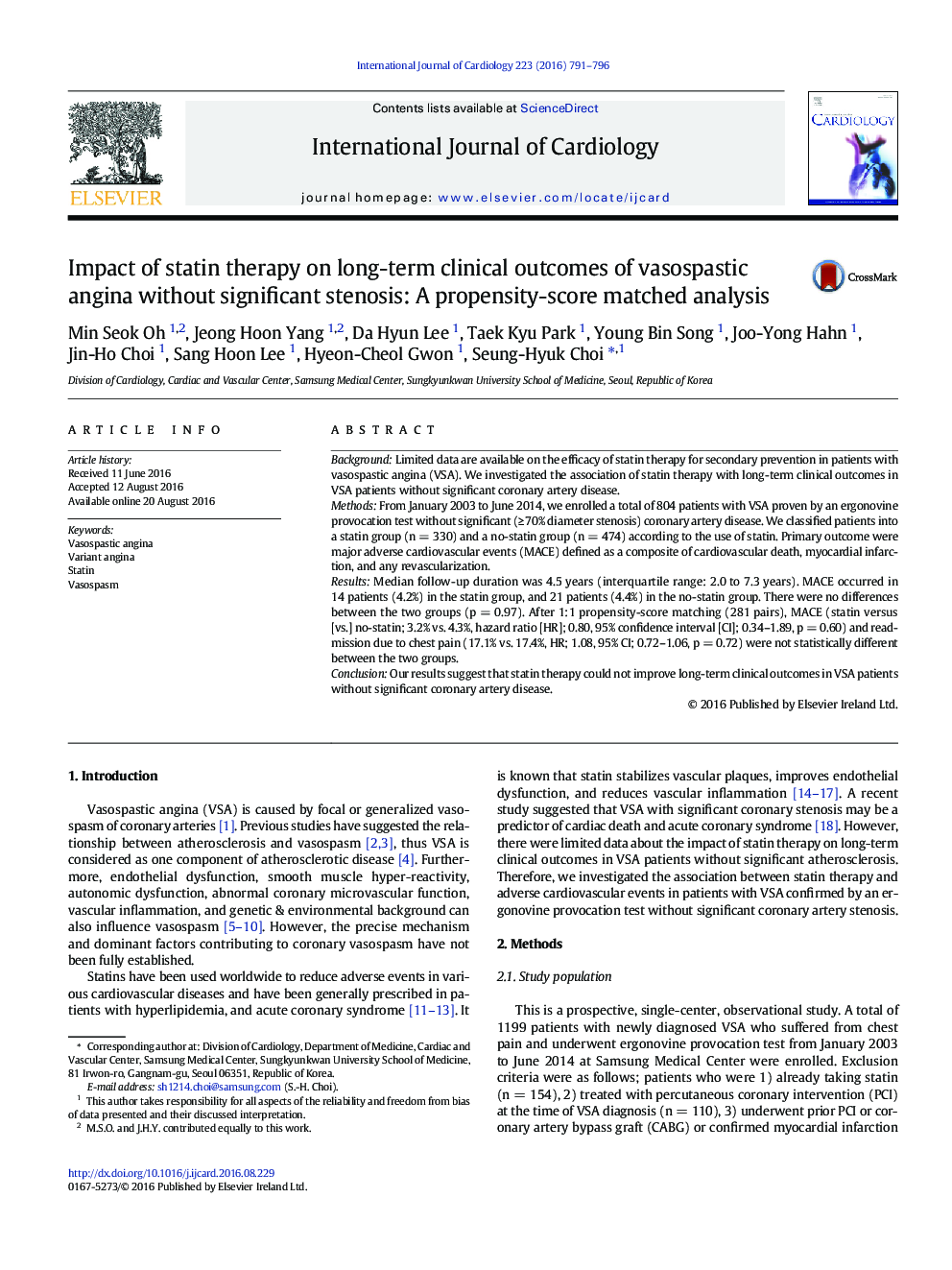| Article ID | Journal | Published Year | Pages | File Type |
|---|---|---|---|---|
| 5963273 | International Journal of Cardiology | 2016 | 6 Pages |
BackgroundLimited data are available on the efficacy of statin therapy for secondary prevention in patients with vasospastic angina (VSA). We investigated the association of statin therapy with long-term clinical outcomes in VSA patients without significant coronary artery disease.MethodsFrom January 2003 to June 2014, we enrolled a total of 804 patients with VSA proven by an ergonovine provocation test without significant (â¥Â 70% diameter stenosis) coronary artery disease. We classified patients into a statin group (n = 330) and a no-statin group (n = 474) according to the use of statin. Primary outcome were major adverse cardiovascular events (MACE) defined as a composite of cardiovascular death, myocardial infarction, and any revascularization.ResultsMedian follow-up duration was 4.5 years (interquartile range: 2.0 to 7.3 years). MACE occurred in 14 patients (4.2%) in the statin group, and 21 patients (4.4%) in the no-statin group. There were no differences between the two groups (p = 0.97). After 1:1 propensity-score matching (281 pairs), MACE (statin versus [vs.] no-statin; 3.2% vs. 4.3%, hazard ratio [HR]; 0.80, 95% confidence interval [CI]; 0.34-1.89, p = 0.60) and readmission due to chest pain (17.1% vs. 17.4%, HR; 1.08, 95% CI; 0.72-1.06, p = 0.72) were not statistically different between the two groups.ConclusionOur results suggest that statin therapy could not improve long-term clinical outcomes in VSA patients without significant coronary artery disease.
